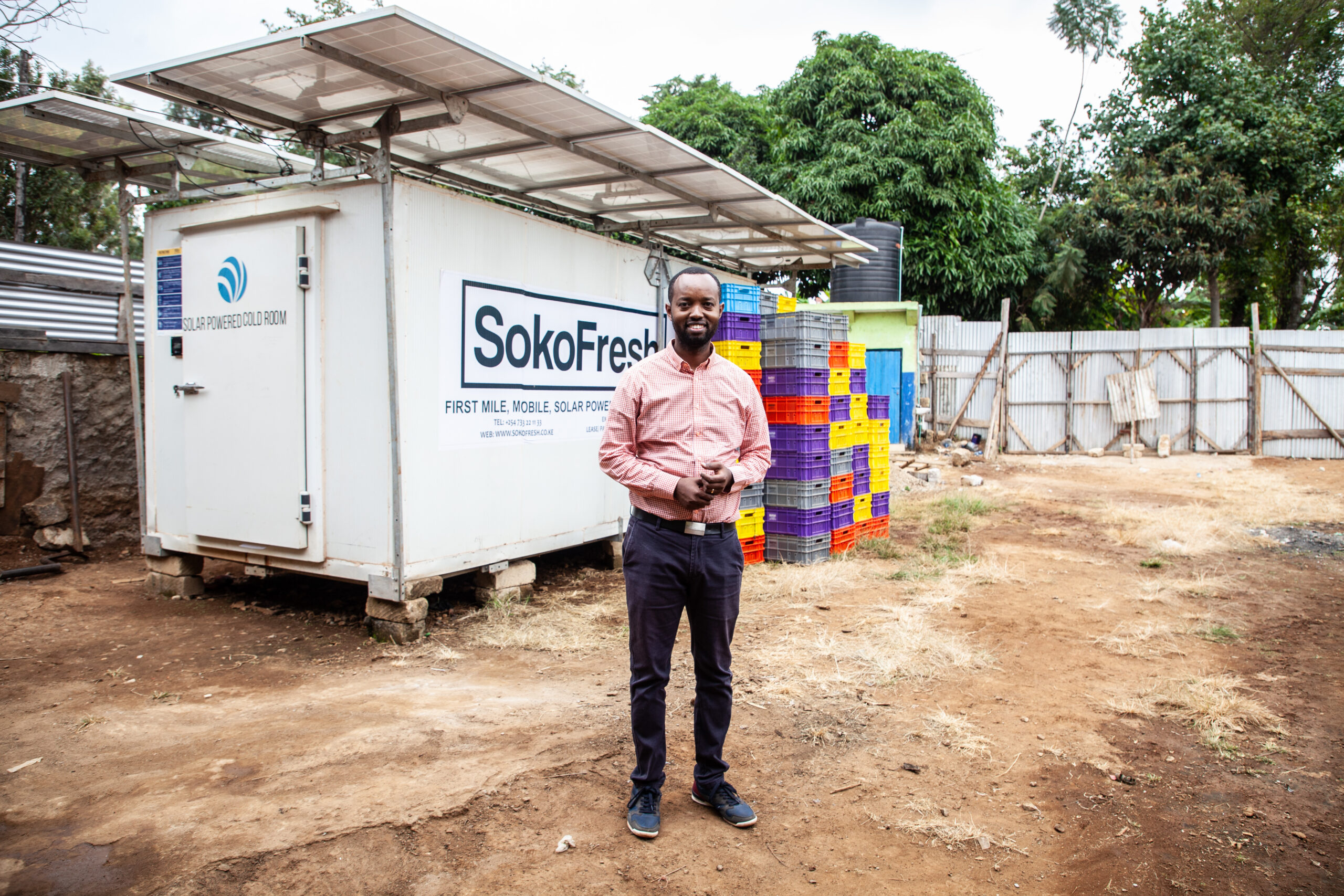Sokofresh
Kenya’s Sokofresh bring solar-powered cold rooms to the country’s smallholder farmers and helps them get a better, more reliable income for what they grow. The company’s smart tech encourages individual growers to come together and supply large orders to commercial buyers, cutting out middlemen. Even the poorest can sell to Kenya’s biggest food brands and exporters and retain more of the value.
Farmers get on the spot payment from Sokofresh and effective cold storage helps them sell a higher-quality product. This has raised farmer incomes by up to 20% with growers seeing just 1% of their fruit rejected by buyers compared to 50% in the past. Services offered by Sokofresh include farmer training on best practice and harvesting as well as access to markets.
- The services have created over 1,685 seasonal jobs
- Poorest can sell to Kenya’s biggest food brands
- Raised farmer incomes by up to 20%
Hundreds of millions of farmers, in Kenya and around the world, suffer from post-harvest loss due to lack of appropriate ways to manage quality of produce at harvest, poor logistics and unpredictable demand. The only way for farmers to manage quality as they harvest over multiple days is by using cold storage facilities. Without it, selling what they grow beyond their local area is often difficult or impossible. Farmers’ earnings are lower and less reliable as a result.
Most existing cold storage is unaffordable to smallholder farmers and previously none was accessible. As the effects of global warming grow in the years ahead, wider access to cooling will be crucial to help rural communities protect their diets and livelihoods.
Sokofresh store rooms
Sokofresh’s cold rooms are solar powered, mobile, have a maximum capacity of five tonnes and are manufactured by sustainable cooling experts Ecozen. The produce they store includes bananas, avocados, mangoes, French beans and flowers.
Sokofresh has two business models – under its ‘pay as you store’ system, farmers can use the cold rooms on a cost-per-kg basis. With this model, Sokofresh also provides harvesting and handling teams and a market linkage service.
Farmers are paid immediately with Sokofresh arranging onward sale of their produce in advance, bundling it with harvests from other nearby growers. This approach creates the volumes that attract interest from large-scale buyers.
Denis Karema, Sokofresh CEO, explained: “Traditionally the farmer would sell to someone with a pick-up truck who would sell on to someone with a larger lorry, and finally onto the buyer. This makes the chain opaque because the farmer can’t tell what the end price is, or negotiate on that basis, and the end-buyer has no idea where the produce came from.”
The company’s second business model centres on leasing cold rooms to companies that already aggregate produce from growers. These include farmer co-operatives, wholesalers and exporters. Sokofresh also offers training and technical support to these customers.

“Traditionally the farmer would sell to someone with a pick-up truck who would sell on to someone with a larger lorry, and finally onto the buyer. This makes the chain opaque because the farmer can’t tell what the end price is, or negotiate on that basis, and the end-buyer has no idea where the produce came from.”
Denis Karema, Sokofresh CEO
“A force for good”
Denis grew up in a village in Kenya where he witnessed post-harvest loss first-hand – something that motivates him in his work. He says: “My drive is the pursuit of wide-spread impact, using business as a force for good.”
The farmers who have benefited include Enid Gatakaa, who grows bananas in Meru County. She says: “I have not had a good experience with local brokers because of the payment terms and the handling of my farm produce. Therefore, I was impressed with Sokofresh’s professionalism and their 100% payment on the spot. I often leave them to harvest on my farm, without supervision, because I have seen their work ethic.”
Source: Ashden Awards


